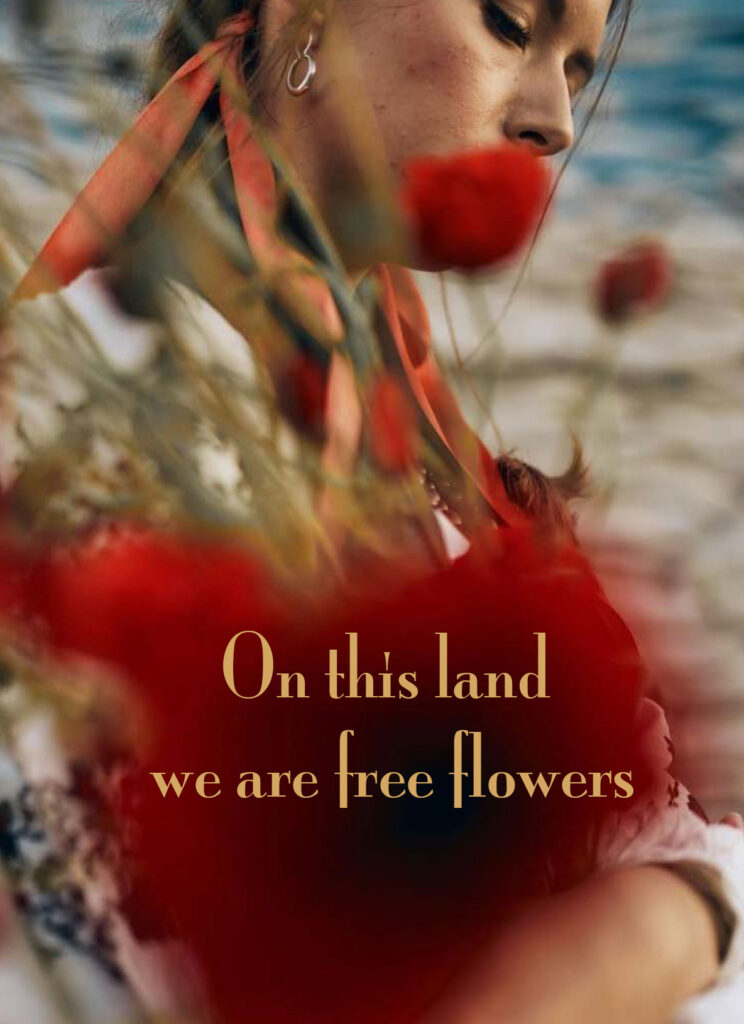
LOGLINE
Russian propaganda claimed that their military would be greeted with flowers in Ukraine. They were cruelly mistaken. Four fragile women-florists from the Kyiv flower shop go through an incredible ordeal of war, becoming an ironclad support for others. They choose different ways to defend the Motherland, but they have the same desire to show the aggressor that they will not be welcomed with flowers in Ukraine.
CREDITS:
Production company: PSB FILMS (Ukraine)
Director: ZAZA BUADZE
Writer: IVAN TIMSHYN
Producers: BELLA TERZI (Ukraine), JACK ARMSTRONG (Ireland), ELWIN LOOIJE (The Netherlands)
LOCATIONS:
Kyiv, Ukraine
Amsterdam, The Netherlands
Dublin, Ireland
SYNOPSIS:
Russian propaganda claimed that their military would be greeted with flowers in Ukraine. They were cruelly mistaken.
Our film tells the story of four women who used to work at a flower shop in the center of Kyiv before the start of the full-scale war. These heroines vary in age, social status, and life perspectives, but they all share a love for flowers and a desire to bring beauty to people’s lives. However, their common purpose shifts when they unite to confront the aggressor.
Initially, none of them believed in the war. The shop owner, Oleksandra, even ordered and paid for a batch of flowers from the Netherlands for International Women’s Day on March 8th.
But from February 24th, each heroine embarks on her own path:
— Oleksandra (43) becomes a medical volunteer and transforms her shop into a medical supply hub.
— Florist Sophia (33) is forced to become a refugee and with her two children goes to the Netherlands, where their partners promise to help her.
— Florist Louise (24) a Greek girl by roota, has been trying to get her parents out of her native Mariupol since the first days of the war.
— Nadiya (64), a merchandiser who admired Russia, finds herself amidst the battle for Irpin, a town near Kyiv. Сommunication with her is lost or a long time.
Oleksandra, who had undergone IVF before the war, finds out that she is pregnant and faces a choice — to leave Ukraine, protecting herself and her long-awaited child, or to stay.
4 years ago, for the sake of her dream to be a florist, Louise quit her medical studies in her native Mariupol, had a fight with her parents-doctors who pressured her not to break the dynastic tradition, left for Kyiv and has not kept in touch with them since. Now, with Oleksandra’s help, she finds volunteers who organize the evacuation of her parents. The quarrel and resentment have been forgotten — the main thing is that everyone is alive and together again.
Sophia faces everything that refugees face: a different way of life, lack of basic household practices, children who do not understand what is happening. Her life becomes divided — consciously, she’s in Europe, solving immediate problems and cherishing her children’s safety. However, her heart remains in Ukraine, torn by the inability to provide assistance. Oleksandra advises her to settle in the Netherlands due to the prolonged war. Sofia, who had been thinking about emigrating with her husband before the war started, dreams of returning home, especially since her husband has enlisted in the Ukrainian Armed Forces.
Nadiya’s neighbor visits the shop. She reveals that Nadiya is wounded from a mine explosion and can’t leave the city, even if she wanted to. She asks for help with her dog. Thus, a mongrel dog named Manya becomes a part of the shop.
In April Russian forces start withdrawing from Kyiv. Louise’s boyfriend enrolls in the Ukrainian Air Assault Forces and departs for training. Louise decides to become a paramedic. Oleksandra, who already well-connected in medical circles, arranges paramedic training for Louise close to the training grounds, and Louise goes with her boyfriend.
Oleksandra takes the dog, goes to Irpin and finds Nadiya’s house. Nadiya miraculously survived. Two women, embracing each other, are crying in a dilapidated house, while Manya is whimpering with happiness below.
Oleksandra is getting sick, and the doctor says that if possible she should leave, so as not to endanger the life of her long-awaited child. But Oleksandra cannot give up her activity — her shop has become a center for hundreds of people she is trying to help.
Oleksandra’s partners are asking her what to do with the flowers she had paid for before the war. Sophia has an idea how to transform the flowers into aid for Ukraine. Together with her daughter, they record a video message on social media in which they say that a charity flower sale will take place on the central square of the city this weekend, with all the money going to help Ukraine.Over the weekend, hundreds of people gather to buy flowers for Ukraine, and even after the flowers are gone, people continue to donate.
The first customer who wants to buy flowers shows up at the store.
Despite the war, life goes on — the first customer who wants to buy flowers shows up at the store, it means that they need to work both for victory and for for people’s well-being. People need something that brings a moment of joy, something to momentarily forget about the war.
Oleksandra and Nadiya decide to reopen the flower shop, allocating a part of it as a volunteer hub. Sophia realizes she cannot live in Europe. Even though she would attempt it in any other circumstance, her country, husband, and friends need her support. Sophia returns and continues working in her beloved shop.
Louise, now a qualified paramedic, marries her boyfriend, who has become a soldier in the Ukrainian Armed Forces. Both are dressed in military uniforms, and Louise holds a beautiful bouquet. With their parents and friends, Oleksandra, Sophia, and Nadiya stand behind them.
They all step outside. Louise turns her back and throws the bouquet to her friends. Unexpectedly for everyone, the bouquet lands right into Oleksandra’s hands.
